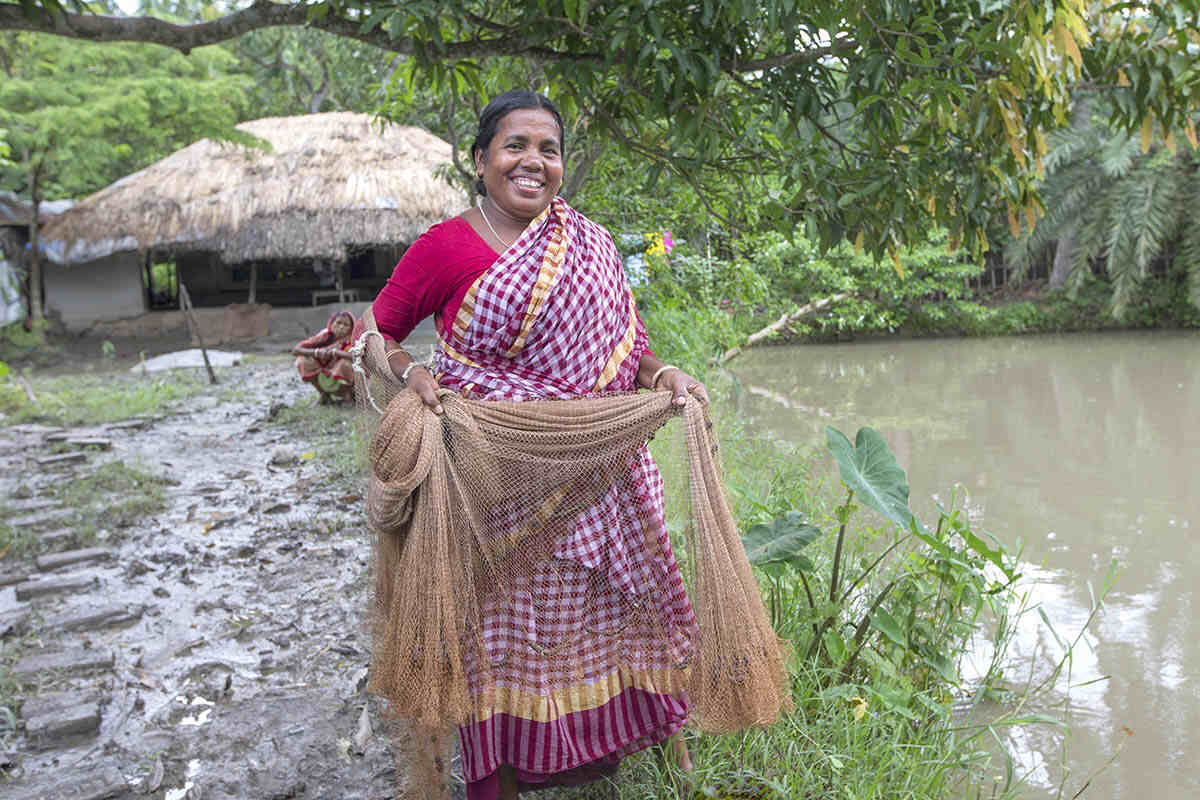Bangladesh, a developing nation with a population of approximately 166 million, is witnessing a transformation in its aquaculture sector, particularly in the shrimp industry. Historically considered “men’s work,” the fisheries sector is gradually breaking free from traditional norms, recognizing the significant contributions of women. Of the 17.8 million individuals employed in the fisheries industry, 1.4 million are women, with the shrimp sector leading the way in employing women. With over 80 percent of the workforce in shrimp processing factories being female, it’s clear that women’s involvement in shrimp farming holds the potential for enhanced social empowerment and financial independence.
Overcoming Challenges
Bangladesh faces numerous challenges in this endeavor, including the impact of climate change in the southwestern region. Increased floods and cyclones have disproportionately affected the impoverished coastal communities, particularly women, limiting their access to resources, mobility, and economic opportunities. Many women are left in rural areas as men migrate to cities in search of employment, often restricted by domestic duties or conservative values. Low negotiation power in their households hampers their access to resources and decision-making.
These challenges are compounded by the fact that women are paid less than men, and their meager income has been further eroded by the Covid-19 outbreak. Illiteracy, social and religious restrictions, and economic hardships have limited opportunities for women in coastal areas. As a result, the abuse of women and child marriage has surged, creating a complex web of social and economic issues.
Fishbyte’s Contribution to Women’s Empowerment
Fishbyte, an innovative aquatech company, is at the forefront of change in the aquaculture sector, actively working to empower women in Bangladesh’s fisheries, particularly in shrimp farming. Fishbyte’s approach involves:
1. Technological Advancements: Fishbyte leverages modern aquatech solutions that reduce physical labor and make aquaculture more accessible to women, breaking down barriers to entry.
2. Skill Development: Through training and education programs, Fishbyte equips women with the skills and knowledge necessary for various aspects of shrimp farming.
3. Job Opportunities: Fishbyte provides employment opportunities to women in aquaculture, enabling them to earn a sustainable income and achieve financial independence.
4. Challenging Gender Stereotypes: Fishbyte actively promotes gender equality by offering equal opportunities and recognition for women’s contributions in the sector.
5. Collaborations with NGOs: Fishbyte collaborates with non-governmental organizations to further women’s empowerment initiatives, offering support and resources to help women gain access to education, training, and financial assistance.
The Brighter Future
Fishbyte’s commitment to empowering women in the aquaculture sector aligns with the global vision of women’s empowerment. By breaking down traditional norms and providing women with opportunities, skills, and resources, Fishbyte is helping reshape the future of aquaculture in Bangladesh. Increased involvement of women in shrimp farming not only contributes to their social empowerment but also expands their human and social capital.
By empowering women to make crucial decisions for themselves and their families, Fishbyte is taking substantial steps towards eliminating poverty in the coastal regions. This sustainable approach is not just about gender equality but also about creating a brighter and more equitable future for coastal communities in Bangladesh.
In conclusion, the journey towards empowering women in the aquaculture sector is well underway, and Fishbyte’s efforts are a beacon of hope for achieving a more inclusive and prosperous future for the women of Bangladesh.
